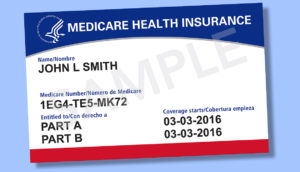Dear Liz: Because of COVID, my 27-year-old son lost his job and health insurance. He was unable to afford continued health insurance and did not qualify for Medicaid. He contracted spinal meningitis and was hospitalized 12 days. The hospital reduced his bill to $28,000 from the original $80,000, but he is still unable to pay. He remains unemployed and without any savings. What would you suggest he do?
Answer: Your son should first call the hospital and ask about applying for financial assistance. Federal law requires nonprofit hospitals to offer this help to low-income patients, and many for-profit hospitals also offer programs that can reduce or even eliminate the charges.
He also should ask about a payment plan geared to what’s left of his income. He should resist any hospital pressure to put the bill on a credit card, because hospital payment plans typically don’t charge interest while credit cards do.
If he’s still left with a bill he can’t pay, he should consult a bankruptcy attorney, and do so as soon as possible. Bankruptcy experts are predicting a big uptick in filings as people and businesses struggle with fallout from the pandemic.
 Today’s top story: How frugal fashionistas can stay on trend. Also in the news: What Biden or Trump could do for your student loans, why you need an investment policy statement, why you need an investment policy statement, and college student argue distance learning should cost less.
Today’s top story: How frugal fashionistas can stay on trend. Also in the news: What Biden or Trump could do for your student loans, why you need an investment policy statement, why you need an investment policy statement, and college student argue distance learning should cost less. Today’s top story: Are Medicare Advantage plans worth the risk? Also in the news: 4 ways women can invest in other women, 4 market headwinds facing first-time buyers, and 9 million Americans will get letters about missing stimulus checks.
Today’s top story: Are Medicare Advantage plans worth the risk? Also in the news: 4 ways women can invest in other women, 4 market headwinds facing first-time buyers, and 9 million Americans will get letters about missing stimulus checks. Today’s top story: Your credit history opens doors – here’s how to build it. Also in the news: what happens to your debt if your school closes for good, and exit strategies for young adults forced home during COVID-19.
Today’s top story: Your credit history opens doors – here’s how to build it. Also in the news: what happens to your debt if your school closes for good, and exit strategies for young adults forced home during COVID-19.  Today’s top story: For lower-credit homeowners, refinancing is harder, but not hopeless. Also in the news: 4 home insurance pitfalls to avoid during hurricane season, survey finds majority of parents want personal finance taught in high schools, and how to decide between a 15-year and 30-year mortgage.
Today’s top story: For lower-credit homeowners, refinancing is harder, but not hopeless. Also in the news: 4 home insurance pitfalls to avoid during hurricane season, survey finds majority of parents want personal finance taught in high schools, and how to decide between a 15-year and 30-year mortgage.